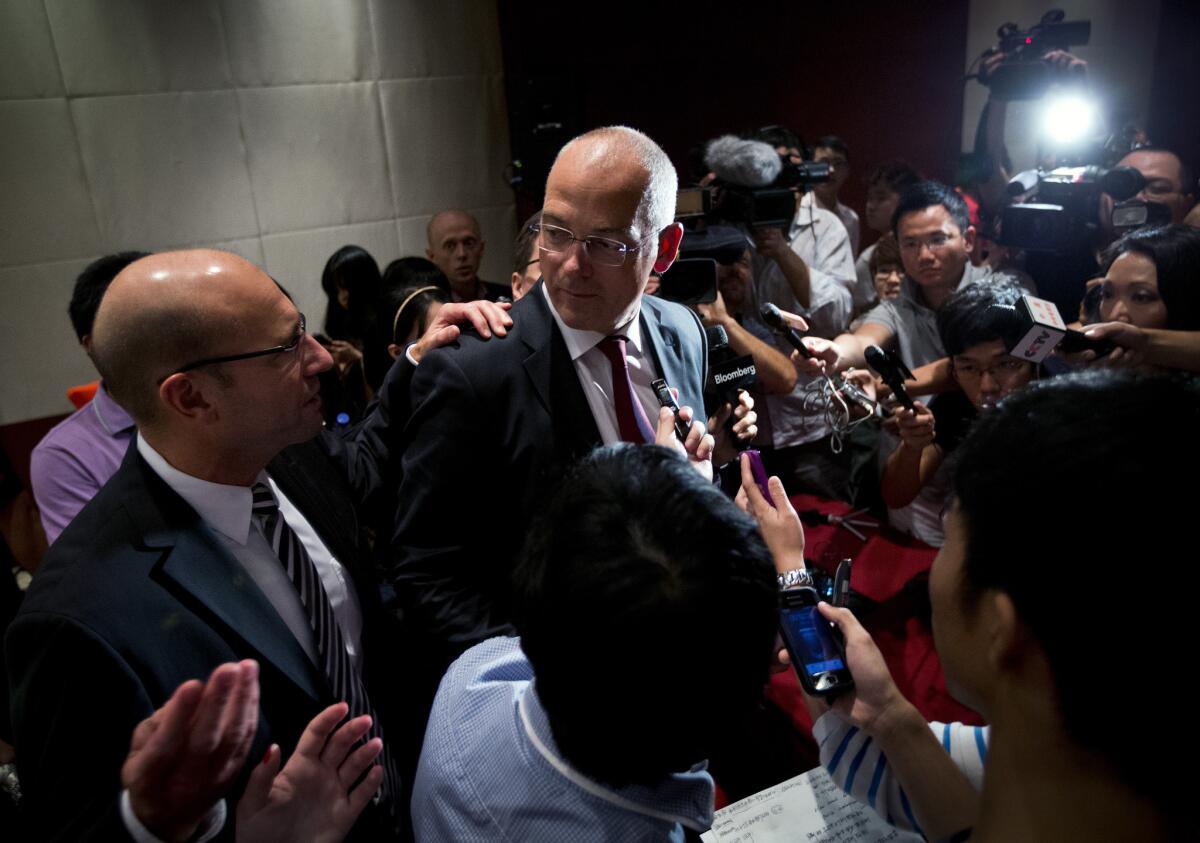New Zealand tainted-milk scare sends shock waves through China

- Share via
BEIJING -- Revelations by a New Zealand dairy company that its exports could contain toxic bacteria have sent shock waves across Asia -- perhaps nowhere more so than in China, where officials announced a recall of potentially tainted powdered milk over the weekend.
The news has shaken Chinese parents, who have grown to trust foreign formula brands over anything produced locally. Thousands of Chinese babies were sickened and several died in 2008 after drinking domestically produced formula that had been spiked with melamine, a compound used in making plastics that allowed watered-down milk to pass quality tests.
The latest food scandal erupted when New Zealand dairy giant Fonterra announced Saturday that whey concentrate used in products including baby formula and sports drinks was found to contain bacteria that can cause botulism, a rare and sometimes fatal illness.
China is one of Fonterra’s biggest markets. The company’s chief executive, Theo Spierings, flew to Beijing for emergency talks and a public apology Monday.
“We really regret the distress and anxiety which this issue could have caused,” Spierings said at a hastily organized news conference. “We totally understand there is concern by parents and other consumers around the world. Parents have the right to know that infant nutrition and other dairy products are harmless and safe.”
China’s domestic dairy industry has been battered by safety problems for years, notably after the 2008 incident, when the tainted milk spurred mass buying trips to Hong Kong and elsewhere amid an outcry over food safety and lack of regulatory oversight.
Authorities vowed to clean up the supply chain and took steps including beefing up the country’s product recall system.
However, a group of parents was blocked from filing a class-action lawsuit against dairy companies in the wake of the scandal. In 2010, one of the most vocal parents, activist Zhao Lianhai, was sent to prison for 2 1/2 years for “disturbing social order.”
The resulting climate of mistrust has created huge demand for imported formula and domestic brands that use imported ingredients.
“In this case, Fonterra provides raw materials, making the issue more serious than cases before,” said Yan Xin, a Beijing-based lawyer who specializes in food and agricultural issues.
“But I think this may be a good chance for domestic brands to develop better-quality products,” he added.
Chinese media seized on the issue, practically gloating over the fact that a foreign company was behind a food-safety scandal in China. Some consumers noted, however, that the product recall system worked as intended.
One mother, whose now-6-year-old son developed kidney stones from melamine-tainted formula in 2008, said the latest scandal makes her doubt all brands sold in China.
“Parents in China like me feel it’s very difficult to buy safe milk powder now,” said Zhang Ge, 41.
[For the record, 1:08 p.m. PDT: An earlier version of this online article misspelled the name of the imprisoned activist as Zhao Linhai. The correct spelling is Lianhai.]
ALSO:
Syria firing missiles into civilian areas, rights group says
U.S. extends closure of diplomatic posts in Muslim world
Stoli boycott targets Russian anti-gay law -- but hits Latvian vodka
McLaughlin is a special correspondent.
More to Read
Sign up for Essential California
The most important California stories and recommendations in your inbox every morning.
You may occasionally receive promotional content from the Los Angeles Times.










